News
-
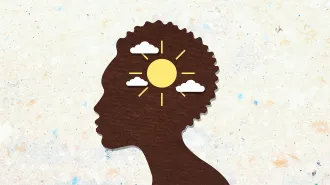 Neuroscience
NeuroscienceA study hints positive thinking could strengthen vaccine immunity
Thinking positive increased a specific brain region's activity and might have heightened immune response after a shot.
By Simon Makin -
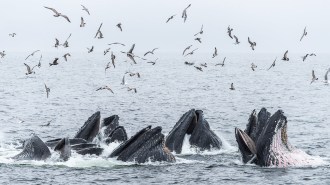 Animals
AnimalsCanadian humpback whales thrive with a little help from their friends
Humpback whales are teaching each other a feeding technique called bubble netting, and it's helping a Canadian population recover from whaling.
-
 Health & Medicine
Health & MedicineGenes may shape how long we live more than once thought
New research challenges the view that human life span depends mostly on lifestyle. Genes may account for half the factors that determine longevity.
By Jake Buehler -
 Climate
ClimatePolar bears in the Barents Sea are staying fat despite rapid sea ice loss
Polar bears can struggle to adapt to climate change. Bears on Svalbard may be surviving on land prey and seals — but scientists warn it may not last.
-
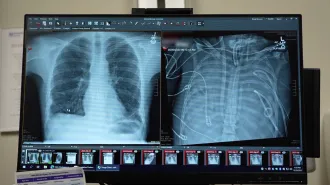 Health & Medicine
Health & MedicineArtificial lungs kept a man alive until he could get a transplant
A new artificial lung system might keep people without lungs alive for weeks. Like real lungs, tubes and pumps oxygenate blood and maintain blood flow.
-
 Physics
PhysicsA massive clump of dark matter may lurk in the Milky Way
Pulsating remnants of stars hint at a clump of invisible matter thought to be about 10 million times the sun’s mass.
-
 Anthropology
AnthropologyWhaling may have started 1,500 years earlier than already known
Specialized whale-bone harpoons from southern Brazil dating back 5,000 years suggest that Indigenous groups in the area were whalers.
-
 Genetics
GeneticsAI tool AlphaGenome predicts how one typo can change a genetic story
The tool helps scientists understand how single-letter mutations and distant DNA regions influence gene activity, shaping health and disease risk.
-
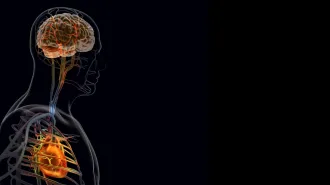 Health & Medicine
Health & MedicineThe brain’s response to a heart attack may worsen recovery
In mice, blocking heart-to-brain signals improved healing after a heart attack, hinting at new targets for cardiac therapy.
-
 Animals
AnimalsSpider silk-making organs evolved due to a 400-million-year-old genetic oops
An ancient ancestor of spiders and relatives doubled its genome about 400 million years ago, setting the stage for the evolution of spinnerets.
By Jake Buehler -
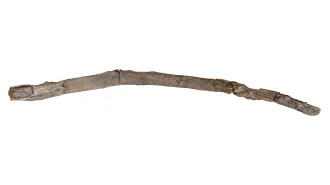 Archaeology
ArchaeologyThis ancient stick may be the world’s oldest handheld wooden tool
These 430,000-year-old wooden tools from Greece are a rare find and provide a glimpse at the technical know-how of our early human ancestors.
By Tom Metcalfe -
 Animals
AnimalsSome vaccines are making progress in protecting vulnerable species
Vaccines can be a crucial conservation tool. But getting shots to wildlife, and developing them in the first place, is tough.